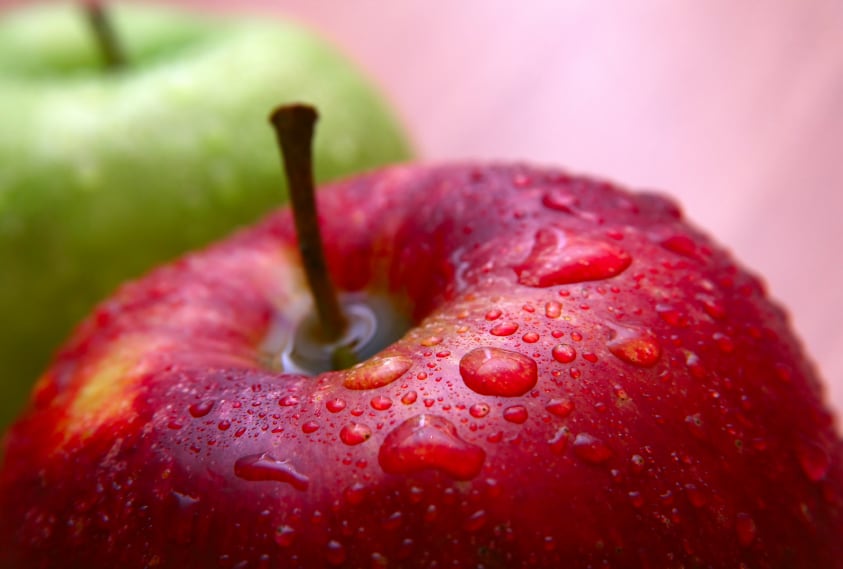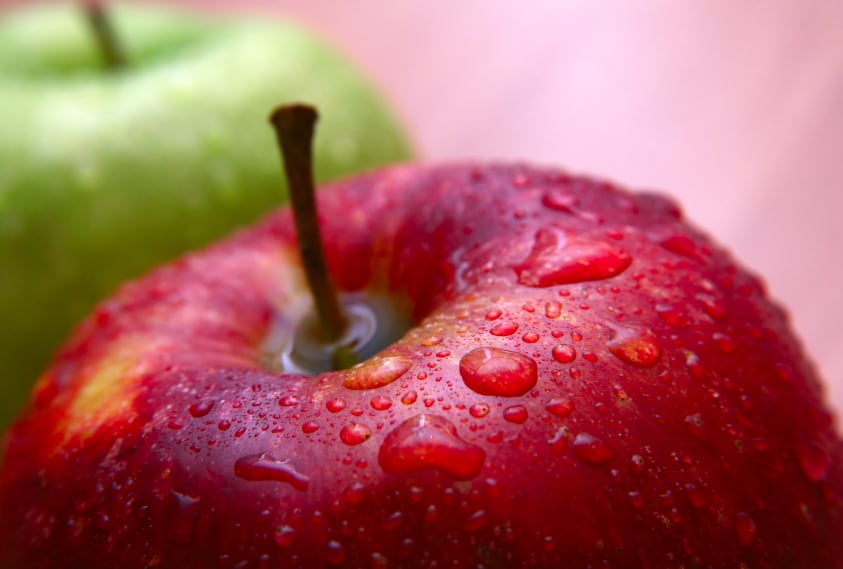Eating two apples a day has been shown to help keep cholesterol down and fight heart disease risk, according to new research.
In a paper published in the American Journal of Clinical Nutrition a team of scientists led by the University of Reading in collaboration with the Fondazione Edmund Mach Institute in Italy found that eating apples which were rich in fibre and compounds called polyphenols reduced the amount of total LDL cholesterol and improved markers associated with blood vessel health in participants who had slightly raised blood cholesterol levels.
The study used Renetta Canada apples grown in Trentino, Italy, which are rich in a type of polyphenol compound called proanthocyanidins (PAs). An apple juice squash, similar in calories and sugar as the apples, was used as a control. The apples used had significantly higher proportions of fibre (8.5g vs <0.5g, respectively) and total polyphenol content (990mg vs 2.5mg, respectively).
The team carried out a randomised controlled trial of 40 men and women aged from 29–69 with moderately high cholesterol levels. For a two-week period before the dietary intervention, volunteers followed their habitual diet but were required not to consume probiotics (e.g., live yogurts, fermented milk drinks), prebiotics (e.g., inulin, fructooligosaccharide), or any apples, apple juice, or apple-containing foods. During the 20-week study period itself volunteers were told to avoid probiotics, prebiotics, and any other apple products (apart from the provided items).
One group ate two apples a day for eight weeks, and then after a four-week washout period, drank 500 mL of a sugar-matched apple squash daily for a further eight weeks. The other group received the intervention foods in the reverse order. Volunteers were asked to incorporate the intervention products into their normal habitual diet and understood that both products had potential benefit. Clear instructions were given to eat the apple skin and flesh and not to consume the apple core.
The researchers discovered that the introduction of two daily apples could help to reduce the risk of cardiovascular disease by 4%.
Professor Julie Lovegrove, Director of the Hugh Sinclair Unit of Human Nutrition at the University of Reading said: “This latest study shows that the impact of an easy to implement dietary change could have an important impact on key measures of heart disease risk. A particular interest in this study is how the two whole apples, rather than a sugar and calorie matched apple juice drink, has had a significant effect on markers of heart health of participants. It seems the old adage of an apple day was nearly right.”
Dr Thanasis Koutsos from the University of Reading's Food and Nutritional Sciences Department who performed the study, added: “One of the clear findings from this study is that simple small changes in our diet such as the daily introduction of two apples may have an important impact on markers of heart health.
“We don’t yet know whether the fibre that is found in the apple or the polyphenol which is in significantly greater concentration in the apples we used is responsible for the results. Either way, the clear winner here is the whole food.”
Source
Two apples a day lower serum cholesterol and improve cardiometabolic biomarkers in mildly hypercholesterolemic adults: a randomized, controlled, crossover trial
American Journal of Clinical Nutrition
Authors: Athanasios Koutsos, Samantha Riccadonna, Maria M Ulaszewska, Pietro Franceschi, Kajetan Trošt, Amanda Galvin, Tanya Braune, Francesca Fava, Daniele Perenzoni, Fulvio Mattivi



